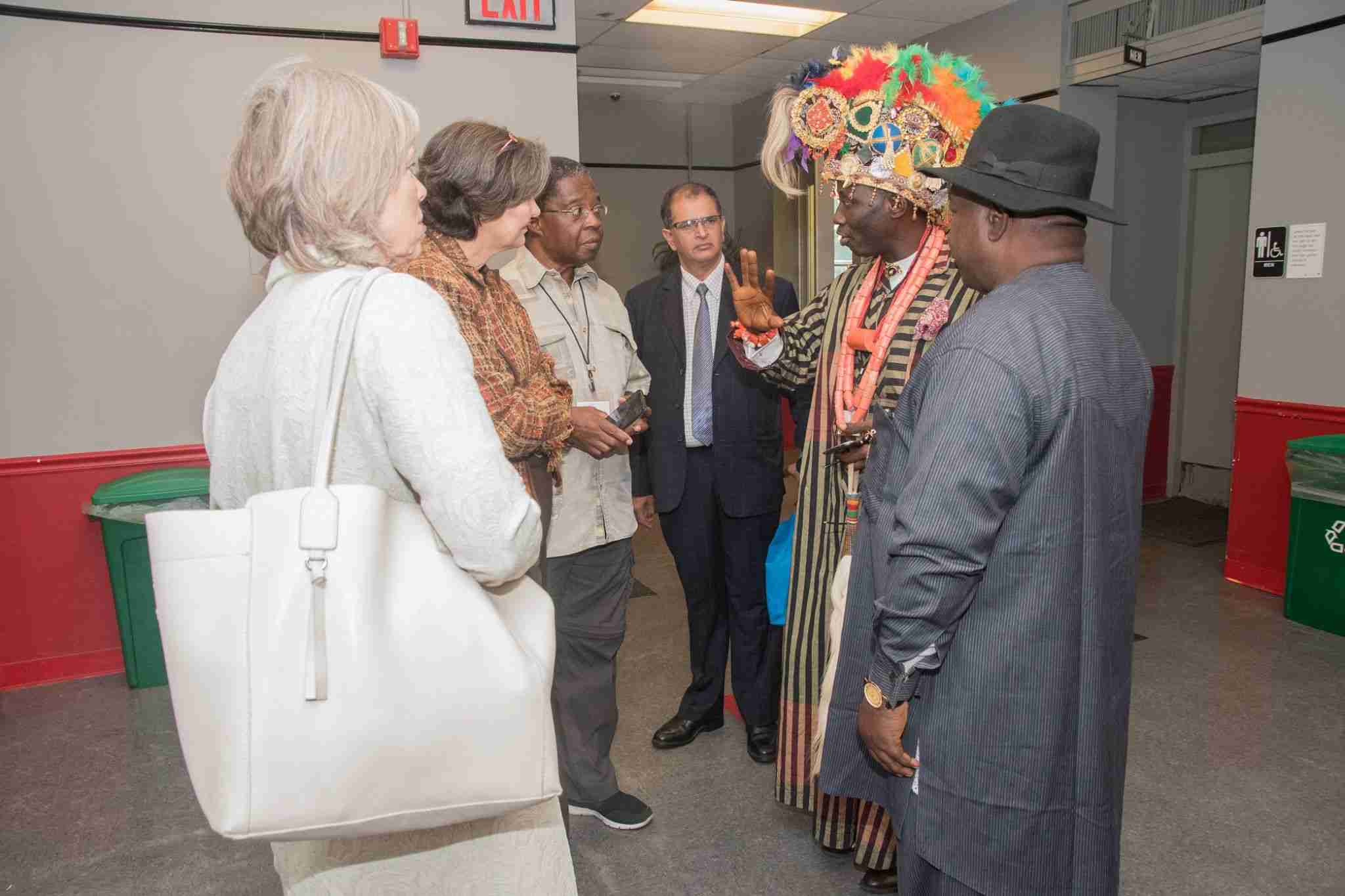2018 International Conference Videos

Indigenous conflict resolution practices have been neglected for a long time in our conflict resolution training and curriculum design.
Due to the influence of the Western system of education, the legal systems in most countries that have a significant number of indigenous populations are unfortunately Western.
At ICERMediation, we believe that relegating indigenous ways of resolving conflict to a state of inertia is not only morally wrong, but a naïve policy that encourages cultural genocide.
Indigenous Conflict Resolution Systems and Processes
To start a global conversation on this phenomenon, we decided to make indigenous conflict resolution systems and processes the central theme for our 5th Annual International Conference on Ethnic and Religious Conflict Resolution and Peacebuilding.
The conference was held at Queens College, City University of New York, 65-30 Kissena Blvd, Queens, NY 11367.
Participants came from many countries around the world.
In the edited volume, Traditional Systems and Practices of Conflict Resolution, you will find research findings that were presented at the conference.
The conference also inspired the Virtual Indigenous Kingdoms project.
Below, you can watch the video recordings of the conference sessions, including the keynote address, distinguished speeches, and panel discussions.
Please subscribe to our channel to receive updates about future video productions.
Day One - 2018 Conference

Conference on Ethnic & Religious Conflict Resolution & Peacebuilding: Opening Speech by Basil Ugorji
7:25
Conference on Ethnic & Religious Conflict Resolution & Peacebuilding: Opening Remark by Sophia McGee
4:48
Blessing from the Traditional King and Queen - Conference on Ethnic & Religious Conflict Resolution
1:49
United Nations and Indigenous Peoples by Broddi Sigurdarson, Permanent Forum on Indigenous Issues
42:44
Reimagining Conflict Resolution as Indigenous Social Institution: Shona Approach-Dr. Ismael Muvingi
28:15
The Israeli-Arab Peace Process: The Final Status of Jerusalem and its Holy Sites by Harry H. Moskoff
29:22
Case Study of a Traditional Jewish Process of Reconciliation and Conflict Resolution-Dr. Daniel Roth
23:38
Religious Power, An Alternative to Political Power: The Mozabites of Algeria - Abdel-Halim Berretima
19:08
Integrating Trauma-Informed Approaches with Traditional Methods for Healing by Angi Yoder-Maina
14:01
The 21st Century and the Escalation of Religious Violence in Africa: Case of Uganda by Mubiru Musa
13:04
Influence of Traditional Society on Conflict Resolution in Buganda Kingdom, Uganda by Mutyaba Farouk
16:10
Understanding the Ibn Arabi’s Cultural View of Conflict and Conflict Resolution by Bushra Furqan
24:44
Contentions Over Public Space: Religious and Secular Voices for Peace & Justice by Daniel Oduro Sem
17:04Day Two - 2018 Conference

Q&A with Dr. Moses Obenade on Traditional Mechanism of Controlling Violence in Rivers State Nigeria
19:55
The Way Forward for Justice—Blending Traditional & Modern Dispute Resolution -Jacqueline Nolan-Haley
20:12
How Mindfulness &Meditation can Enhance the Mediation Experience -Katharina Mauer & Martin Applebaum
18:21
The Settlement of Fulani Herdsmen / Farmers Conflict in Nigeria by Dr. Ferdinand Okonicha Ottoh
18:01
Principles, Effectiveness and Challenges of Traditional Dispute Resolution by Genevieve M. Sabala
14:16
Q&A with Elisa Cofini, Ferdinand Ottoh, and Genevieve Sabala on Traditional Conflict Resolution
4:08
Interface Between Traditional and Modern Approaches of Conflict Management by Iddy Ramadhani Magoti
9:36
Q&A with Howard Kaminsky and Iddy Magoti on Jewish, Traditional, and Modern Conflict Resolution
20:36Day Three - 2018 Conference

Traditional Ways of Settling Disputes in Rwanda: Gacaca Courts & Abunnzi Mediators by Denis Bikesha
35:34
Traditional Ways of Settling Disputes in Rwanda and in the Crude Oil and Gas Rich Ekpetiama Kingdom
32:33
Traditional Cultural Musical Performance by CUMBE Center for African and Diaspora Dance, New York
15:16
Collection of Ottoman Documents of Matenadaran Regarding the Armenian Genocide by Vera Sahakyan
21:07
The Right to Reparation Program for Victims of Conflict: Post-Conflict Ambon by Yustina Trihoni Dewi
22:07
Q&A with Vera Sahakyan and Yustina Dewi on the Armenian Genocide and Post-Conflict Ambon Reparation
19:18
Interface Between Traditional and Modern Approaches of Conflict Management by Iddy Ramadhani Magoti
9:36



























































